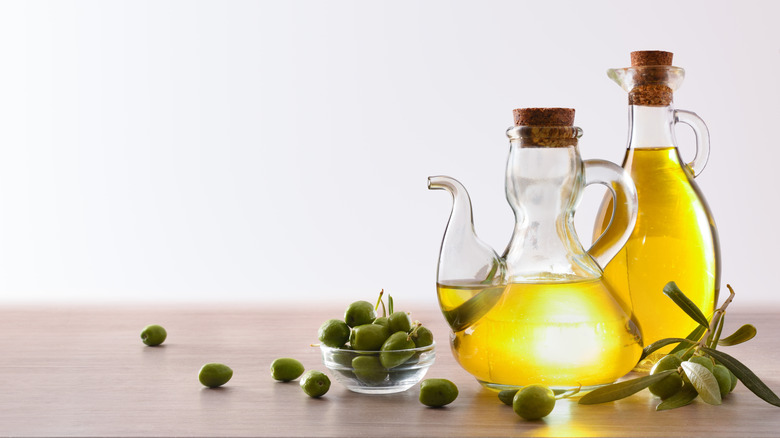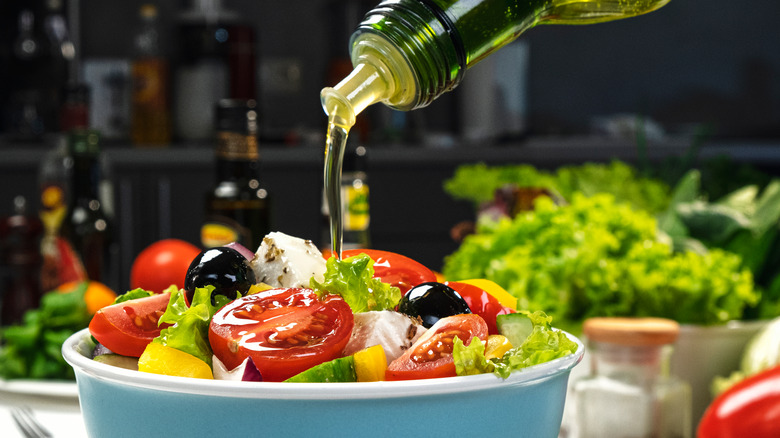Is There A Nutritional Difference Between Extra-Virgin Olive Oil And Regular?
No kitchen pantry is complete without at least one good bottle of olive oil. It's been found to be a preferred cooking fat among chefs and home cooks alike and is constantly mentioned in recipes and cooking tutorials (via MasterClass). It is and has been so well trusted that, according to Brightland, there is archaeological evidence that olive oil has been in use for the last 6,000 years.
One aspect of the cooking fat that might be confusing, however, is the difference between regular and extra-virgin olive oil. According to Fustini's, extra-virgin olive oil must be made by cold-pressing the olives and must not contain chemical additives. Regular olive oil, on the other hand, does not have as many heavily enforced rules in its manufacturing methods. Extra-virgin olive oil must also contain no more than 0.8% oleic acid to earn its rigorous certification.
One of the reasons for olive oil's popularity is its frequently touted nutritional benefits. D'Olivo Tasting Bar points out that olive oil is considered one of the healthiest fats available. It has a wide range of antioxidants, which can improve heart health. Is it important to have the right type of olive oil to get the most of these health benefits though?
Extra-virgin olive oil has some additional benefits
Extra-virgin olive oil might be more coveted than standard olive oil, but nutritionally the two actually stack up fairly well. If you're using olive oil as a source of monounsaturated fats, both varieties have plenty of the same healthy fats. More specifically, according to Jessica Gavin, both extra-virgin and regular olive oils typically have around 10 grams of monounsaturated fats, and 1.4 grams of polyunsaturated fats per tablespoon.
However, Medical News Today points out that the extra processing used to make standard olive oil lessens its nutritional benefits. Research has shown that extra-virgin olive oil tends to have a higher count of polyphenols (a type of antioxidant) compared to regular olive oil. Gobble also confirms that some nutrients and vitamins may be stripped during manufacturing, though it doesn't detail which.
One of the key ways to get the most nutrition for your money comes down to how these oils are used. Medical Daily reports that heating extra-virgin olive oil may break down many of the nutrients — like phenol antioxidants and monounsaturated fatty acids — that you splurged on to get high-quality olive oil. It also has a lower smoke point, meaning that it will degrade at low temperatures (about 375 degrees Fahrenheit), so it generally isn't great for frying or sautéing. Instead, it's best to save extra-virgin olive oil for cases where it will be consumed raw, like in dressings and dips. For cooking and roasting, make sure to keep some regular olive oil around.

